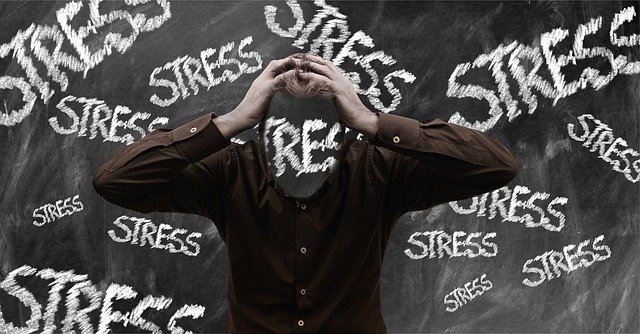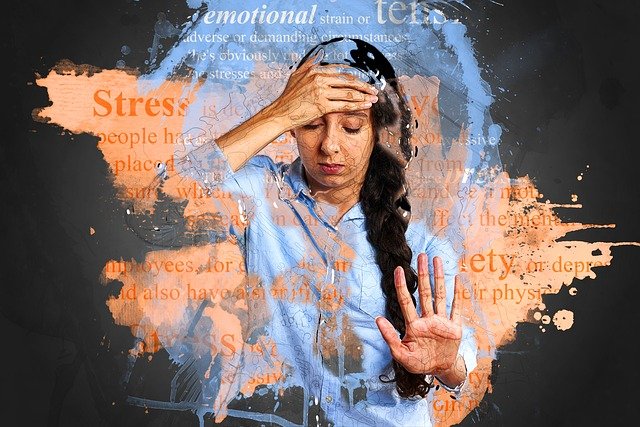How To Overcome Stress? Stress is something many people have to deal with every day. Stress levels are often exacerbated by stress-related issues such as work, family, health, financial obligations, and other daily life events.
Factors such as genes, social support, personality, and coping styles can influence stress vulnerability, making it more common for some people to be stressed than others.
It is crucial to reduce the stress in your daily life. Chronic stress can cause damage to your health and increase your chances of developing conditions like heart disease, anxiety disorders, depression, and stroke.
Stress is not the same thing as mental disorders like anxiety or depression. These conditions require medical attention. These tips may help with stress relief, but they might not be helpful for people suffering from these conditions.
What is Stress?

Stress is your body’s reaction to a challenge. Stress can be caused by many things, including daily problems or major life changes such as a divorce or job loss. Stress can cause elevated heart rate, blood pressure, thoughts, and beliefs about stressful events, as well as physical reactions such as fear, anger, and increased heartbeat. Although stress is often seen as something negative, it can also be a result of positive life events such as a promotion or having a baby.
How To Overcome Stress in Healthy Ways?

Stress serves a vital purpose: it allows us to quickly respond to threats and avoid danger. Long-term stress exposure can lead to mental health problems (such as anxiety and depression) or worsening of physical health. Research has shown that stress can affect your ability to manage physical illness. Although you cannot avoid stress altogether, there are ways to reduce it and increase your chances of recovery.
1. Exercise
Regular exercise is a great way to relax your mind and body. Exercise can improve your mood. It’s important to practice it regularly to reap the benefits.
How much exercise should you do each week? You can do moderately intense exercises like brisk walking for up to two hours or 75 minutes of more vigorous activities like swimming laps or jogging.
So you don’t lose heart, you should set realistic goals for your fitness. Remember that any kind of exercise is better than no exercise at all.
2. Relax Your Muscles
Your muscles become tense when you are stressed. These can be helped by you and your body.
- Stretching
- A Massage
- Take a hot shower or bath
- A good night’s rest
3. Deep Breathing
It can be easy to take a few deep, slow breaths and let go of the pressure. It will be amazing how much better it makes you feel when you master this skill. Follow these five steps:
- You can sit comfortably with your feet on a table or in a chair. Or you can lie down.
- Close your eyes.
- Picture yourself relaxing in a peaceful place. You can find it on the beach, in a field of grass, or anywhere else that provides a tranquil feeling.
- Slowly take deep, slow breaths in and exhale out.
- This can be done for between 5 and 10 minutes.

4. Eat Well
People try to reduce stress by overeating or drinking alcohol. While these actions may appear to reduce stress temporarily, they can actually increase it over time. Caffeine can also increase stress’s effects.
A regular, healthy, and balanced diet can help you feel better. This may help you to control your moods. For energy, your meals should include plenty of fruits, vegetables, whole grains, as well as lean proteins. Don’t skimp on any. It is not healthy for you and can cause you to be in a bad mood.
5. Relaxation
Relaxing every day can help you manage stress and protect your body from its effects. There are many techniques you can use to relax, including imagery, deep breathing, progressive muscle relaxation, and mindfulness meditation. These techniques can be accessed online or via smartphone apps. Some require purchase, but many are free. 6. Reduce Stress Triggers
Your life can be overwhelming if you’re like most people. These demands are usually ones that we choose. Time-management skills such as asking for help when needed, setting priorities, pacing yourself, and taking care of yourself can help you free up your time.
7. Reduce your Caffeine Intake
Caffeine stimulates the central nervous system. It is found in tea, coffee, and chocolate. An excessive intake of alcohol can increase anxiety and make it worse. Plus, overconsumption may harm your sleep. This can lead to anxiety and stress symptoms.
Different people have different tolerance levels for caffeine. Consider reducing caffeine intake if you feel anxious or jittery from drinking energy drinks or coffee.
Many studies have shown that coffee can be healthy when consumed in moderation. However, it is recommended to consume a minimum of 400mg per day. This would mean 4-5 cups (0.9-1 L) of coffee. However, some people may feel more anxious or stressed if they consume less caffeine.
8. Learn To Set Boundaries and Say No
Some stressors may not be within your control. Overloading your plate can increase stress and reduce your time for self-care. You can reduce stress and improve your mental health by taking control of your life.

You can do this by saying “no” more often. This is especially important if you feel overwhelmed by the number of responsibilities you are taking on. You can reduce stress by being selective in what you accept — and saying no to unnecessary extras.
Creating boundaries, especially with people who increase your stress levels, is a healthy way of protecting your well-being. It’s as easy as asking friends or family members to not stop by unannounced, or canceling standing plans with someone who creates drama.
9. Talk About Your Problems
Talking about things that bother you can reduce stress. Talk to your family, friends, doctor, or therapist.
You can also talk to yourself. Self-talk is a form of self-talk that we all use. Self-talk can help reduce stress but it must be positive and not negative.
When you feel stressed, pay attention to what you are thinking and saying. Change the negative message you are sending yourself to become a positive message. Don’t tell yourself, “I can’t do that.” Instead, tell yourself, “I can do it” or “I’m doing my best.”
10. Take It Easy On Yourself
You can’t control everything, no matter how hard or fast you try. Also, you can’t control everything. Do yourself a favor, and stop believing you can control everything. Keep your sense of humor. Laughter can make you feel more relaxed.
Conclusion
Many people are faced with challenges that can be overwhelming, stressful, and trigger strong emotions in both children and adults. Physical distancing and other public health measures can lead to isolation and loneliness, which can cause anxiety and stress.
People may experience strong, lingering reactions after a trauma. Stressful feelings and symptoms can be reduced by learning healthy ways of coping and receiving the right support. Contact Dr. Neha Mehta for stress counselling.
Also, Read
9 Benefits of Morning Meditation For 1 Hour | How To Meditate?
8 Proven Ways To Improve Your Focus At Work












